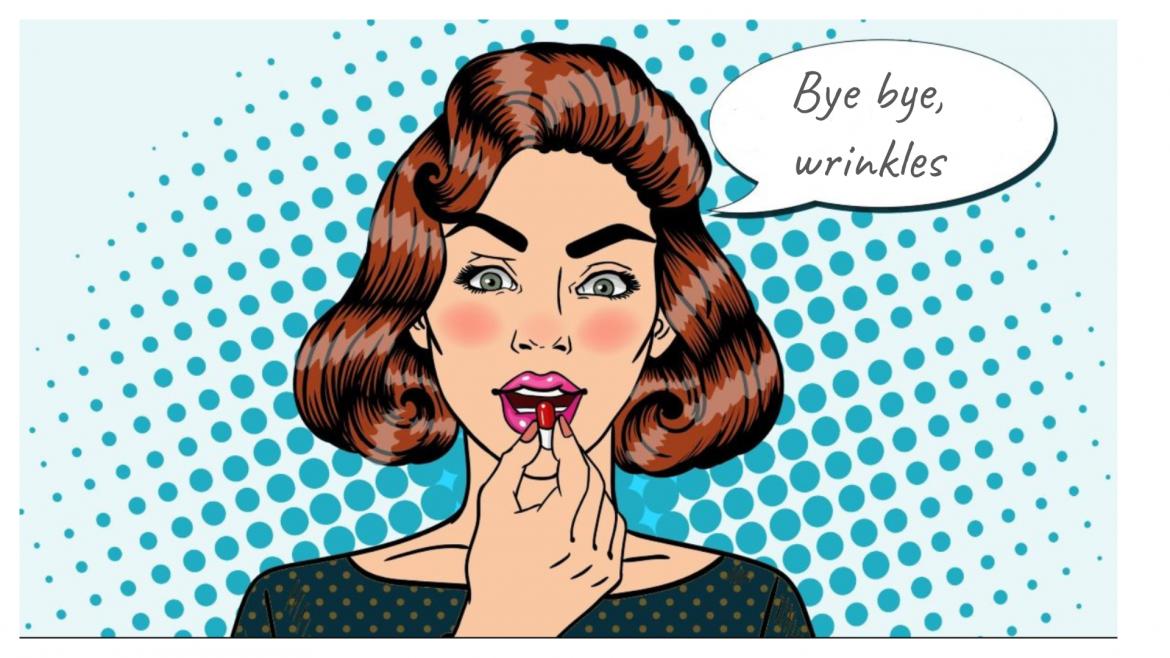Wouldn’t it be nice to be able to take a magic pill that would stop time and slow down wrinkles and spots?
What do we know about anti-ageing products?
We know that a large proportion of skin ageing (up to 80%) is caused by the sun. For this reason, the use of sunscreen is a must if we want an anti-ageing routine.
In an anti-ageing routine, sunscreen is a must.
In addition to this, the most proven active ingredient in terms of anti-wrinkle and anti-spot effect is retinoic acid.
Are there any oral anti-ageing options?
It is clear that a healthy diet contributes in many ways to maintaining a healthy body and therefore beautiful skin. Fruits and vegetables, which are rich in antioxidants, help to combat oxidative stress caused by the sun, pollution and other factors. If you eat well, you don’t need miracle vitamin supplements to fight ageing.
A healthy diet, rich in antioxidants, helps fight ageing
However, knowing the proven effects of retinoic acid, and knowing that isotretinoin (the famous Accutane ® for acne) is a derivative of it, it is reasonable to think that taking isotretinoin orally could have similar effects to retinoic cream, which could be more convenient. In addition, I recently told you that we generally use low doses of this drug, and that these have been shown to be very convenient and safe.
What does the science say about isotretinoin and ageing?
There is some research that has tried to establish whether taking low doses of isotretinoin (lower than we use for acne) has any effect on wrinkles or collagen synthesis.
Some of them find favourable effects; others do not. Relevantly, one article finds that the effects of isotretinoin may be noticeable, but that they are not better than 0.05% retinoic acid and a good sunscreen.
Although isotretinoin is safe, there is insufficient scientific evidence in favour of its use as an anti-ageing agent.
Isotretinoin is a safe drug, but it is important to weigh the benefits against the risks of using it to prevent ageing. Many of its users are women of childbearing age, and the most serious adverse effect of this drug is the risk of foetal malformation in pregnant women. This is why isotretinoin treatments are so tightly controlled.
In conclusion…
It is possible that isotretinoin could help prevent skin ageing. However, there is not enough good-quality scientific evidence to recommend isotretinoin for this use. The trials that have been done are inconclusive. It is important to assess the risk-benefit ratio.
